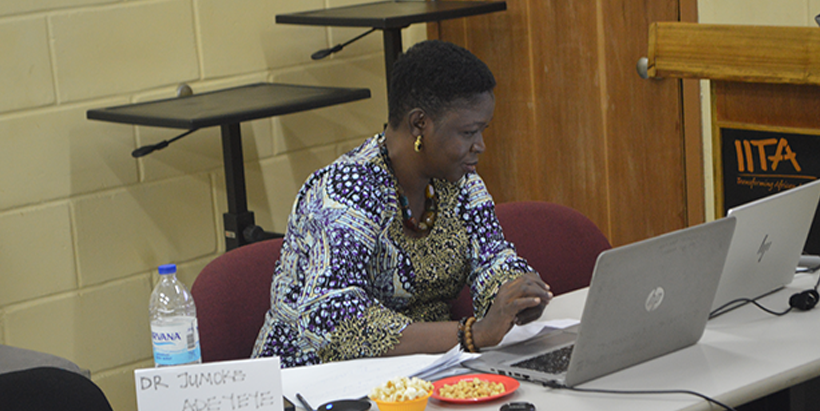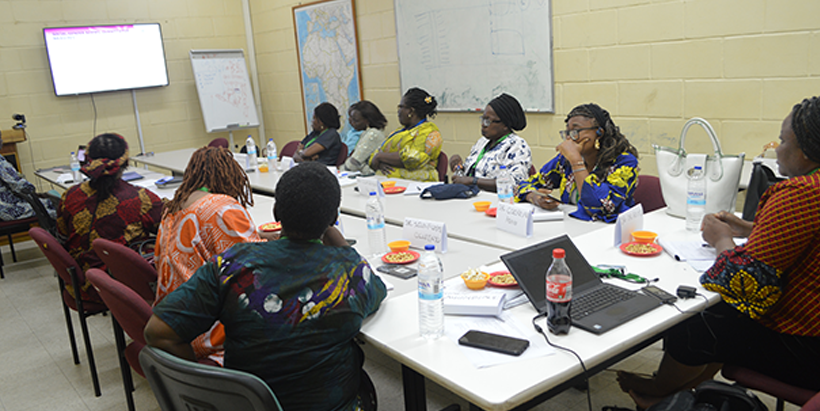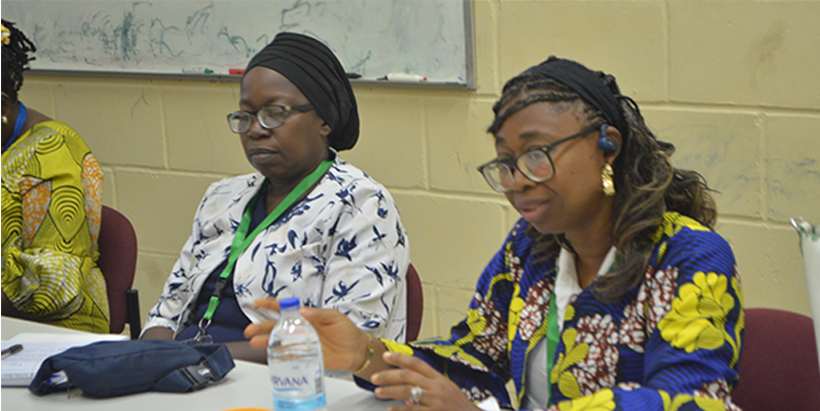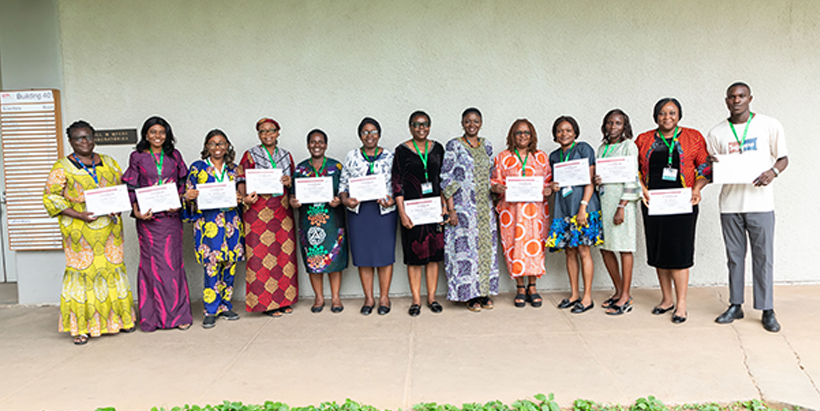There is an increasing call for researchers, practitioners, and development professionals to adopt more transformative approaches to gender integration. Gender Transformative Approaches (GTAs) are vital for achieving meaningful and sustainable gender equality, as they go beyond surface-level interventions to address the root causes of inequality, challenge harmful gender norms, and shift imbalanced power dynamics.
Recognizing the need to strengthen the capacity of professionals to implement GTAs, the CGIAR Gender Equality Initiative—now known as the Gender Equality and Inclusion (GEI) Accelerator—developed a modular training course on GTAs within agrifood systems. As part of its rollout, the GEI Accelerator organized a four-day pilot training for academic staff of the University of Ibadan, Nigeria. Participants included ten lecturers from the Faculty of Agriculture who teach gender-related courses and gender focal persons from the University’s Gender Mainstreaming Office.
Objectives of the training
The training was designed with two key objectives. First, pilot-test the GTA modules to receive feedback for refinement and improvement. Second, equip lecturers with knowledge and best practices for implementing GTAs in agrifood systems while supporting them in integrating these modules into their curricula.
The IITA Gender Researcher, Dr Olajumoke Adeyeye, facilitated the training alongside Dr Elizabeth Costenbader and Dr Anjalee Kohli, consultants with the GEI Accelerator. The training’s distinctive feature was its participatory methodology, which incorporated regular feedback sessions, brainstorming activities, group exercises, and open discussions to strengthen the learning process.
Highlights of the training modules
Module 1: The importance of gender in agrifood systems
Participants explored the significance of gender in agrifood systems, the gender agrifood systems framework, and the continuum of gender approaches, with a strong emphasis on transformative strategies. A recurring reflection was the importance of moving beyond simply increasing women’s participation to addressing the systemic barriers that hinder equitable involvement. Dr Oluwaseun Adeleke, one of the lecturers said, “The distinction between gender-accommodative and gender-transformative programs was a major takeaway. This understanding will help my students critically address structural inequalities in their MSc and PhD projects, fostering more transformative change in society.”

One of the facilitators, Dr Jumoke Adeyeye reviewing lecturers’ feedback during the feedback session.(Photo Credit: Tunde Agunbiade)
Module 2: Characteristics of gender transformative approaches
This module unpacked the defining characteristics of GTAs, illustrated through case studies, and considered ethical implications. Participants highlighted that this deeper understanding would allow them to design more inclusive interventions.
Dr Seunfunmi Olutayo, a lecturer remarked, “Recognizing contexts and applying intersectionality are critical strategies for higher education institutions. These insights will improve curriculum design, teaching, and student supervision while fostering inclusive learning environments.”
Module 3: Operationalizing gender transformative approaches
Lecturers were introduced to tools and methodologies for embedding GTAs across project phases. A key lesson emphasized anticipating and monitoring potential resistance or backlash to gender-transformative efforts.
As one participant, Professor Francesca Ukpokolo reflected, “Often, we overlook the unintended negative consequences of interventions. Identifying and addressing resistance is crucial to ensuring programs achieve their intended impact.”
Module 4: Measuring gender transformative change
The final module assessed transformative change across three core dimensions: agency, power relations, and social institutions. Participants practiced developing indicators through an agriculture-based case study.
One of the lecturers, Dr Olajumoke Alabi emphasized, “Understanding that transformative change must occur across multiple levels—and learning how to develop indicators for these—gives me the tools to challenge gender stereotypes and inequalities in teaching, curriculum design, and research.”
Participant feedback and recommendations
Overall, participants commended the modules’ clarity, relevance, and practical design. They highlighted the usefulness of case studies in distinguishing between gender-accommodating and gender-transformative approaches.
For future training, they suggested that the trainers extend sessions to allow participants engage with concepts, incorporate case studies relevant to the Nigerian context for better relatability, and design modules that account for participants’ varying levels of gender knowledge.
The pilot training at the University of Ibadan demonstrated the value of equipping academic staff with the tools and frameworks to advance gender transformative approaches. Participants affirmed the importance of integrating these modules into teaching, curriculum development, and research, underscoring the potential ripple effect on future scholars and professionals.
By engaging educators this way, the GEI Accelerator contributes to a stronger foundation for gender equality within agrifood systems, helping shift the focus from participation alone to genuine, systemic transformation.
Contributed by Olajumoke Adeyeye





No Comments